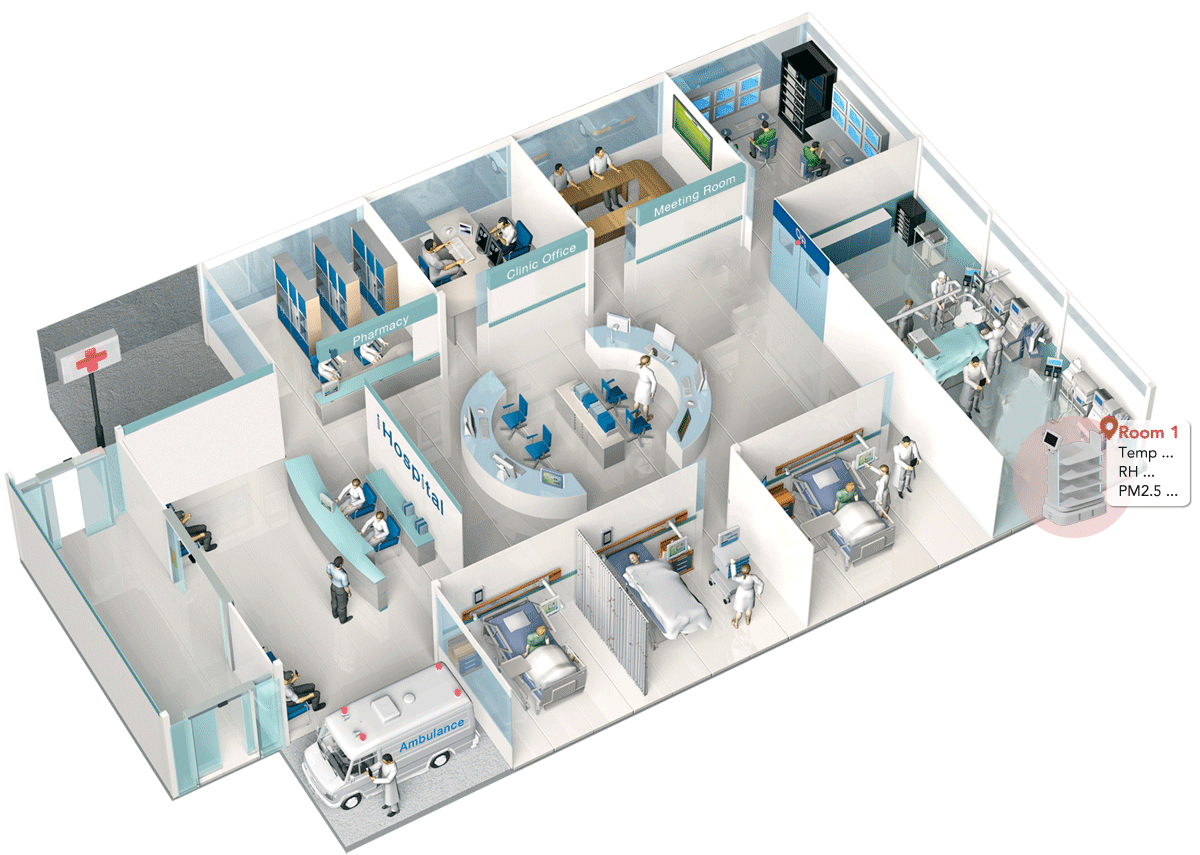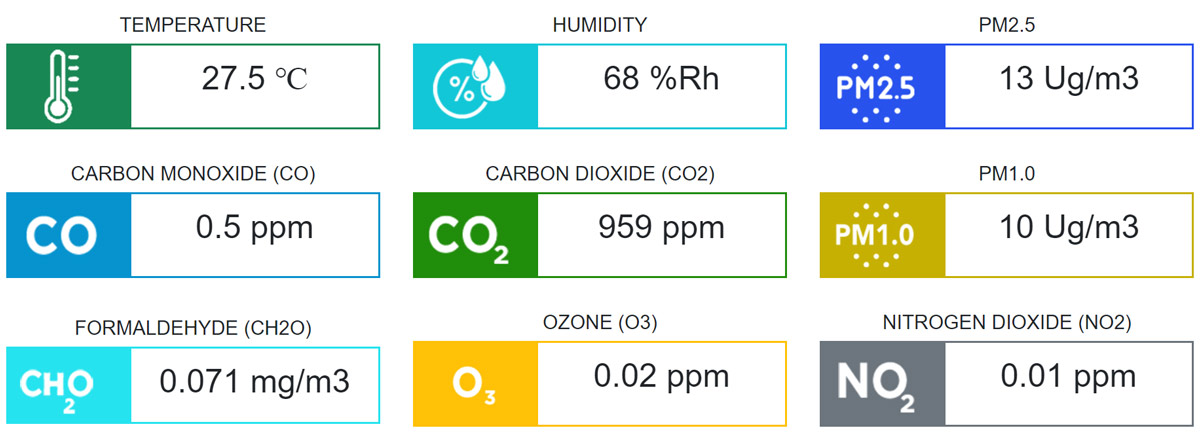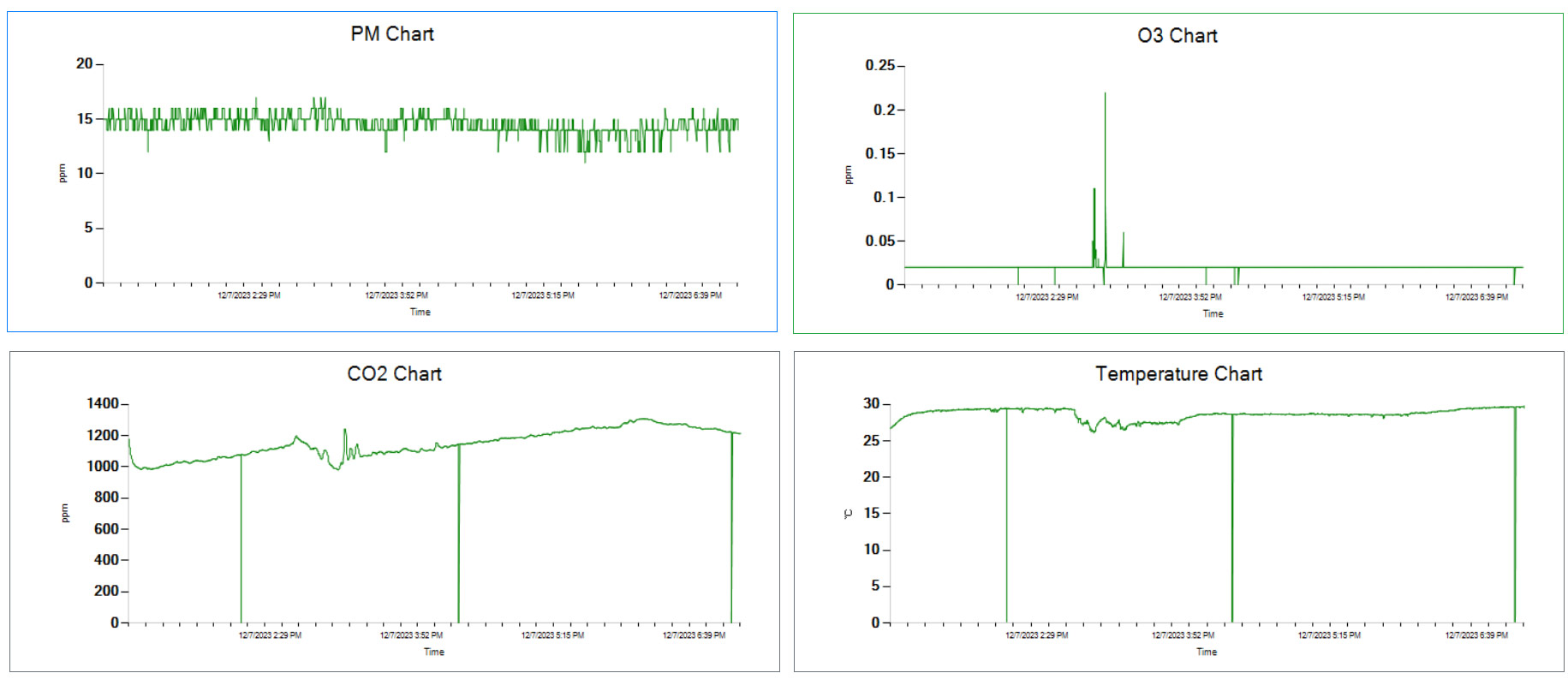Indoor Air Quality (IAQ) Monitoring
Indoor Air Quality (IAQ) refers to the air quality within and around buildings and structures, especially as it relates to the health and comfort of building occupants.

Demand for quality indoor air continues to increase as we spend more time indoors than ever before. This means achieving a balance between comfort and health safety is increasingly important. Factors such as airflow, temperature, humidity, airborne particles, gases and odors all have a role to play in an indoor environment’s air quality. Assessing the air quality in buildings begins with IAQ measurement. Anewtech provides All-in-One gas sensor that integrates multiple sensors to measure various parameters related to air quality in a single unit. These sensors s play a crucial role in ensuring a healthy and comfortable indoor environment. They are designed to provide a comprehensive view of air quality in the indoor environment.
Monitoring IAQ helps building managers understand the quality of the air in a specific environment and take steps to improve it if necessary. Poor indoor air quality can lead to various health issues and discomfort.
Integrating All-in-One Indoor Air Quality (IAQ) Sensor with Delivery Robot

Integrating IAQ sensor with delivery robots involves combining two technologies to address both air quality monitoring and autonomous delivery. The IAQ sensor is attached to the delivery robot, continuously monitoring the air quality in different locations as the robot moves through indoor environments. As the robot navigates through different areas, it collects real-time IAQ data and transmit this information to a central monitoring system.
Combining IAQ monitoring with delivery robots offers a dual-purpose solution, addressing both air quality concerns and the need for delivery systems. It enhances the value of robotic systems by providing additional functionalities beyond just delivery and also help ensure that indoor environments meet certain air quality standards.
Here are the key parameters that all-in-one IAQ sensor measures:

Temperature
Monitors the temperature of the indoor environment.

Humidity
Measures the amount of moisture in the air.

Particulate Matter (PM)
Detects and categorizes tiny particles in the air, including dust, pollen, and other pollutants. Our IAQ sensor measures PM1.0, PM2.5, PM10

Volatile Organic Compounds (VOC)
Measures the levels of various organic compounds present in the air, which can come from household products and building materials.

Carbon Dioxide (CO2)
CO2 detects the concentration of carbon dioxide, which is an indicator of ventilation effectiveness.

Carbon Monoxide (CO)
CO is a colourless, non-irritant, odourless and tasteless toxic gas produced by the incomplete combustion of carbonaceous fuels .

Ozone (O3)
Ozone (O3) containing three oxygen atoms, is a strong oxidizing agent which reacts rapidly on surfaces and with other constituents in the air.

Nitrogen Dioxide (NO2)
Nitrogen Dioxide primarily gets in the air from the burning of fuel. At higher temperatures, nitrogen dioxide is a reddish-brown gas.

Formaldehyde (CH2O)
Formaldehyde is colorless and has a characteristic pungent, irritating odor.
Advantages of IAQ Monitoring

Energy Efficiency
IAQ sensors can be integrated into HVAC systems to optimize their performance based on IAQ data. This helps in achieving energy efficiency by adjusting cooling levels according to actual occupancy and pollution levels.
 Sustainability
Sustainability
By efficiently managing energy consumption, these systems can help organizations reduce their carbon footprint and promote sustainable practices. This is especially important in today's environmentally conscious world.
 Cost Savings
Cost Savings
By optimizing HVAC systems, IAQ sensors can contribute to energy cost savings. Energy-efficient strategies can be implemented based on the actual needs of the indoor environment, reducing unnecessary energy consumption.
 Remote Monitoring and Data Analytics
Remote Monitoring and Data Analytics
IAQ sensor provides a holistic understanding of the indoor air quality by monitoring multiple parameters simultaneously. This include real-time data, historical trends, and recommendations for improving air quality.
 Health and Well-being
Health and Well-being
IAQ sensors help in monitoring the levels of pollutants such as PM2.5, VOC, CO2, etc. Maintaining optimal air quality contributes to the health and well-being of occupants by reducing the risk of respiratory issues, allergies, and other health problems associated with poor air quality.
 Occupant Comfort & Productivity
Occupant Comfort & Productivity
Maintaining a comfortable and healthy indoor environment enhances occupant satisfaction. Improved air quality is often linked to increased productivity. Clean air can enhance cognitive function, concentration, and overall well-being, which can positively impact work environments.

Mobility (Integrating with Delivery Robot)
All-in-one IAQ sensor can be a standalone device install at a room, or attached to the delivery robot to continuously monitoring the air quality in the immediate vicinity as the robot moves through indoor environments. This significantly reduces the deployments cost and there is no sensor installation required at different location. Delivery robot sends real-time IAQ data based on locations to central monitoring system. IAQ sensor is securely attached to the delivery robot, continuously monitoring the air quality in the immediate vicinity as the robot moves through indoor environments.
Indoor Air Quality Monitoring: Report
IAQ sensors offer a range of benefits that contribute to the health, comfort, and efficiency of indoor environments, making them an essential tool in modern building management and home automation systems.


In summary, IAQ sensors offer a range of benefits that contribute to the health, comfort, and efficiency of indoor environments, making them an essential tool in modern building management and home automation systems.